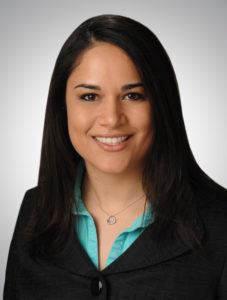
Questions concerning the liability of publicly owned skilled nursing facilities under 42 U.S.C.§1983 (“Section 1983”) were up for debate last week as the US Supreme Court held oral arguments in Health & Hospital Corp. of Marion County v. Talevski. In their questions, several Justices seemed skeptical of Health & Hospital Corporation’s efforts to avoid Talevski’s claims.
The Health and Hospital Corporation was joined by the State of Indiana and, in part, the United States in challenging a ruling by Seventh Circuit Court of Appeals allowing the Talevski family’s claims under Section 1983 to enforce certain provisions of the Federal Nursing Home Reform Act of 1987.
If the Seventh Circuit ruling is left undisturbed, the decision will disproportionately impact states most dependent on public ownership of nursing facilities, with the greatest impact on Indiana. Indiana facilities owned by county hospitals receive additional reimbursement through supplemental payments. This applies to approximately 90% of Indiana’s skilled nursing facilities, which constitutes approximately half of the government-owned nursing facilities in the entire country.
The Court is considering two questions advanced by HHC: (1) Whether the Court should reexamine its longstanding position that individuals have a right to sue in federal court to protect rights granted by legislation created under the Spending Clause of the US Constitution (including federal programs such as Medicare and Medicaid); and (2) More narrowly, whether these rights are unambiguously guaranteed to beneficiaries under the Nursing Home Reform Act.
HHC argued that Congress did not authorize a Section 1983 claim by Talevski to enforce rights under the Nursing Home Reform Act because the Act itself imposes a comprehensive enforcement system on states voluntarily participating in Medicaid. The Secretary of the Department of Health and Human Services may impose sanctions against facilities which violate FNHRA, including civil penalties, termination of Medicaid funding and facility closure.
Counsel for the Talevski family argued that while there may be a process for the secretary of HHS to enforce Nursing Home Reform Act rights violations through administrative remedies, Section 1983 should be available for an individual who “cannot actually make effective use of the administrative scheme.”

One might reasonably ask why the Indiana Solicitor General was invited to join HHC in presenting arguments against the Seventh Circuit’s decision. What common judicial goal does Indiana have with HHC? Indiana’s Solicitor General supported HHC’s argument that a statutory scheme to address grievances already exists under the FNHRA, and thus Section 1983 protection is unnecessary; but Indiana’s primary beef is with the application of Section 1983 in any case seeking to enforce Spending Clause legislation.
Conservatives have sought for years to prevent plaintiffs from asserting Section 1983 claims in the context of Spending Clause legislation, but at oral argument, many Justices, including one conservative Justice, seemed skeptical that this was the right case to overrule precedent. The Chief Justice seemed to suggest in his questions that the Court has already established sufficient restrictions on Section 1983 litigation in cases involving Spending Clause legislation.
If the Court leaves the Talevski decision intact, a resident of a state-owned facility will have access to the federal courts on claims that Nursing Home Reform Act rights were violated, even if state administrative proceedings remain pending or have not been fully exhausted.
In this case, experts predict liability insurance will become significantly more expensive for publicly owned facilities in Indiana. Such a development may require major changes to Indiana’s unusual configuration of publicly-owned nursing facilities.
Randy Fearnow, a partner in Quarles & Brady’s Chicago office, is a co-chair of the firm’s Long-Term Care Team and has 35 years of experience representing long term care providers. He filed an amicus brief for this case on behalf of three state health care associations.
Jaya White, a partner in Quarles & Brady’s Chicago office, is a co-chair of the firm’s Long-Term Care Team and represents long term care providers across the country in a variety of legal, regulatory, and compliance issues.





